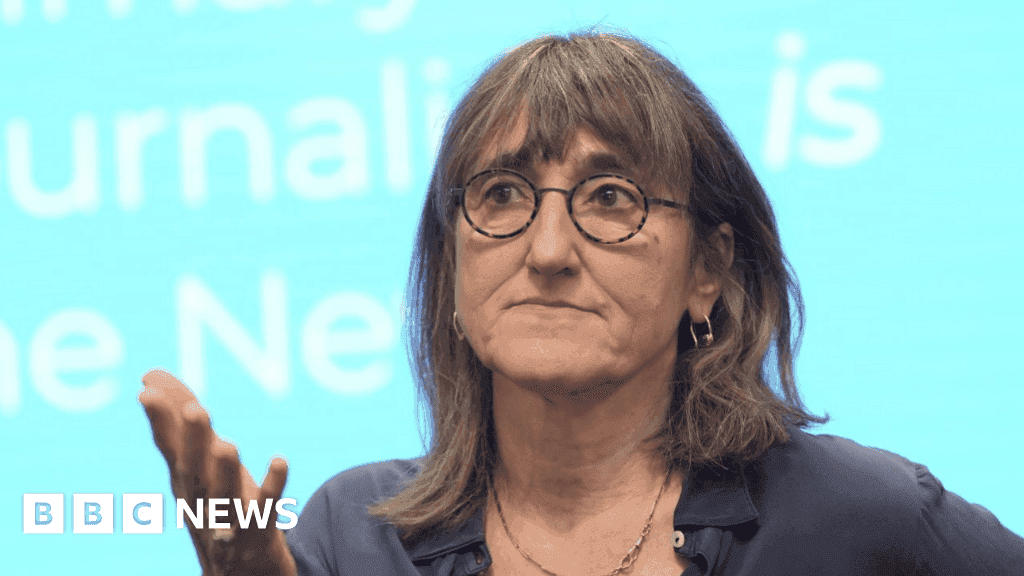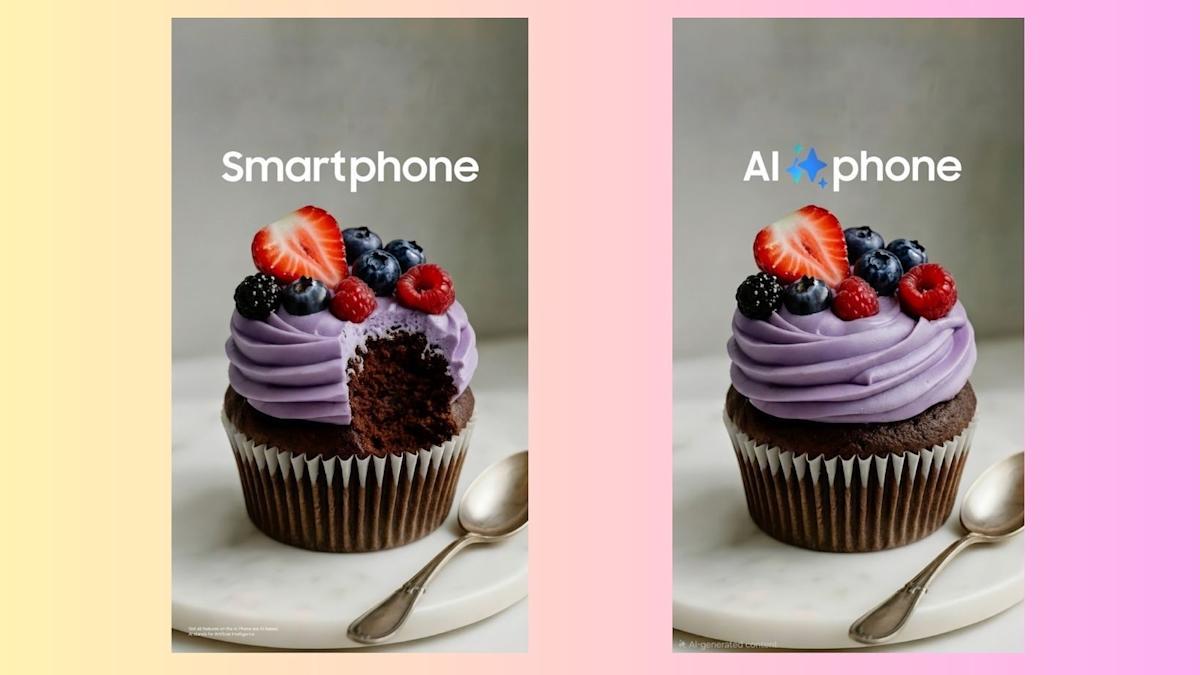UK Unions Demand Stronger Protections for Creative Workers in Face of AI Advancements
2 Sources
2 Sources
[1]
UK unions call for action to protect creative industry workers as AI develops
TUC says proposals on copyright and AI framework must go further to stop exploitation by 'rapacious tech bosses' Action is needed to protect workers in creative industries amid huge changes in technology and artificial intelligence, unions have urged. The TUC said there was an urgent need to put in place "proper guardrails" for workers ranging from artists, writers and journalists to teachers and academics. The union organisation said government proposals for copyright and an AI framework, which are under consultation, needed to go further to protect creative workers. The TUC called for transparency of AI training data to ensure workers know whether their data or image are being used, an opt-in system to protect creative work from commercial data mining unless workers give their permission and consent, and for measures to ensure creative workers are paid fairly for their work when their creative work is used to train AI models. The report also called for an independent regulator to oversee the integration of AI into society and work. The transformative potential of AI was huge, but without adequate regulation, "rapacious tech bosses" would be able to exploit creative workers and cash in on their work, the TUC warned. Its general secretary, Paul Nowak, said: "AI has huge transformative potential - and if regulated properly, workers could benefit from the productivity gains created by this technology. "UK law is simply failing to keep pace with the rapid speed of technological change and proliferation of AI at work. "Writers, actors, performers, teachers, journalists and other creatives must have a say over how their work and image is used, and they must be paid fairly. "A new taskforce should be established, bringing together creative workers, unions, technologists and government to manage the risks and maximise the opportunities of AI. "The government should change direction on current proposals and go further to protect creative workers and safeguard the future of the creative industries. The sector is a jewel in the crown of our economy and vital for growth. "The clock is ticking. Without proper guardrails put in place, rapacious tech bosses will continue to cash in on creatives' work without their consent." Paul Fleming, the Equity union's general secretary, said: "The industrial-scale theft of performers' and artists' work by big tech must stop. "Equity's groundbreaking TV and film negotiations show that empowering workers can help deal with the challenges of AI. "The government's proposals undermine an entire industry - bosses and workers alike - and threaten the efficacy of bargained solutions through unquestioning support of big tech. "The government should embrace this AI manifesto in place of their misguided proposals and recognise that it is people who make our creative industries successful." Emma Reeves, the chair of the Writers' Guild of Great Britain, said: "Writers' work is already being stolen on an industrial scale to train AI systems, without permission or payment - infringing 300-year-old copyright protections. "Without stronger protections for writers, big tech could be allowed to take what they like, when they like, without any requirement to share the profits with writers or other creators. "This will not only harm creators themselves, but will likely deal a serious blow to the emerging AI market and harm the creative industries too. Alternatively, the voluntary licensing of work for AI training offers a potential for growth." Peter Kyle, the secretary of state for science, innovation, and technology, said: "Securing Britain's future as an AI leader and safeguarding the rights and rewards of people at work must go hand in hand as we navigate the complex and challenging technological revolution facing us all. "Our consultation into AI and copyright closed this week and we are now considering the full range of the thousands of responses we have received. "Let me be absolutely clear - no changes will be considered unless I am completely satisfied that we are delivering a solution which works for creators. That is my firm red line."
[2]
Labour's union backers join rebellion against AI plans
Labour's union backers have attacked government plans to make it easier for "big tech" to use artists' content, claiming it will allow "rapacious tech bosses" to exploit creative workers. The Trades Union Congress (TUC), which represents 48 member unions, has warned that Britain's "jewel in the crown" creative industry is at risk unless ministers drop controversial proposals to weaken copyright law for the benefit of AI companies. Under the plans, tech giants could use copyrighted material from writers, artists and journalists to train new software unless the rights holder explicitly chooses to opt out. More than 1,000 musicians last week released a silent album in protest at the move. "UK law is simply failing to keep pace with the rapid speed of technological change and proliferation of AI at work," said Paul Nowak, the TUC general secretary. "Writers, actors, performers, teachers, journalists and other creatives must have a say over how their work and image is used, and they must be paid fairly." Calling for a new AI taskforce to be set up between creative workers, unions, tech workers and the government, he added: "the clock is ticking. Without proper guardrails put in place, rapacious tech bosses will continue to cash in on creatives' work". The TUC said that the Government's proposals for an "opt-out" system is "unworkable in practice," adding to warnings from artists such as Sir Elton John and Sir Paul McCartney that the approach will be difficult to enforce and a huge burden. There has been a fierce backlash from MPs and creative industry bosses over the plans, with critics accusing the Government of pandering to US tech giants. No 10 has insisted that big tech companies need "appropriate access" to creative content, arguing that the current copyright system is not working. There are around 2.4m jobs in the creative industries, representing around 7pc of all UK jobs. The sector is worth an estimated £125bn to the UK economy. In a manifesto published on Monday, the TUC argued that there needs to be more transparency of AI training data so that workers know whether their data or images are being used. As well as establishing a taskforce it also called for there to be an independent regulator to oversee and regulate the integration of AI into society and work, including the creative sector. The trade body also argued for an "opt-in" system where workers have to give permission and consent for their creative work to be used and new "likeness rights" to protect artists from 'deep fakes' using their image and voice without permission. It pointed out that "creative workers are often but not always found in the creative sector. For example, teachers, academics, and other service workers who create or deliver content such as text, images, sound or video recordings in daily tasks also engage in creative work".
Share
Share
Copy Link
UK trade unions call for urgent action to protect creative industry workers from exploitation by AI companies, demanding changes to proposed copyright laws and AI framework.

UK Unions Sound Alarm on AI's Impact on Creative Industries
The Trades Union Congress (TUC) and other UK unions have issued a stark warning about the potential exploitation of creative workers by artificial intelligence (AI) companies. As the UK government proposes changes to copyright laws and AI frameworks, unions are calling for stronger protections to safeguard the rights and livelihoods of workers in the creative sector
1
.Proposed Changes and Union Concerns
The UK government is considering an "opt-out" system that would allow tech companies to use copyrighted material from writers, artists, and journalists to train AI systems unless rights holders explicitly choose not to participate. This proposal has sparked a fierce backlash from creative industry professionals and unions alike
2
.Paul Nowak, TUC General Secretary, emphasized the urgency of the situation: "UK law is simply failing to keep pace with the rapid speed of technological change and proliferation of AI at work. Writers, actors, performers, teachers, journalists and other creatives must have a say over how their work and image is used, and they must be paid fairly"
1
.Union Demands and Recommendations
The TUC has put forward several key demands to protect creative workers:
- Transparency in AI training data usage
- An opt-in system for creative work in commercial data mining
- Fair compensation for creative work used in AI model training
- Establishment of an independent regulator for AI integration
- Creation of a new taskforce involving creative workers, unions, technologists, and government
1
Paul Fleming, Equity union's General Secretary, described the current situation as "industrial-scale theft of performers' and artists' work by big tech" and called for the government to embrace the unions' AI manifesto
1
.Economic Impact and Industry Significance
The creative industries sector, worth an estimated £125 billion to the UK economy and employing around 2.4 million people, is described by the TUC as a "jewel in the crown" of the British economy
2
. The unions argue that without proper regulation, the sector's future could be at risk.Related Stories
Government Response and Ongoing Consultation
Peter Kyle, Secretary of State for Science, Innovation, and Technology, has stated that the government is considering thousands of responses to their recent consultation on AI and copyright. He assured that "no changes will be considered unless I am completely satisfied that we are delivering a solution which works for creators. That is my firm red line"
1
.Broader Implications for Workers
The TUC's report highlights that the impact of AI extends beyond traditional creative roles. Teachers, academics, and other service workers who create or deliver content such as text, images, sound, or video recordings in their daily tasks are also engaged in creative work and could be affected by these changes
2
.As the debate continues, the unions' stance is clear: without proper safeguards, they fear that "rapacious tech bosses" will exploit creative workers and profit from their work without fair compensation or consent. The outcome of this confrontation between unions, the government, and tech companies could shape the future of creative industries in the UK and potentially set precedents for AI regulation globally.
References
Summarized by
Navi
[2]
Related Stories
UK Government's AI Plan Sparks Controversy Over Copyright and Creative Industries
15 Jan 2025•Policy and Regulation

UK Government's AI Copyright Proposals Spark Controversy in Creative Industries
25 Feb 2025•Policy and Regulation

UK Government Considers AI Copyright Reforms Amid Creative Industry Backlash
22 Feb 2025•Policy and Regulation

Recent Highlights
1
ByteDance Faces Hollywood Backlash After Seedance 2.0 Creates Unauthorized Celebrity Deepfakes
Technology

2
Microsoft AI chief predicts artificial intelligence will automate most white-collar jobs in 18 months
Business and Economy

3
Google reports state-sponsored hackers exploit Gemini AI across all stages of cyberattacks
Technology





